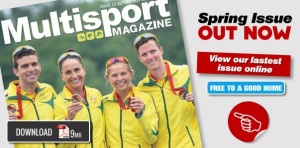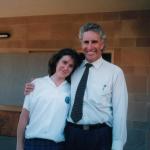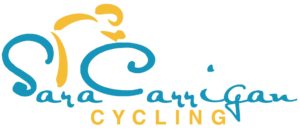I first jumped astride a road bike when I was 14 and I absolutely loved it!
I had no idea what a road bike was nor that the whole world of road cycling existed but what I did know was just how alive and free I felt pedalling my new found love! Riding my bike put a massive smile on my face and I always felt so disappointed when my ride came to an end.
I took to road cycling like a duck to water and I loved going fast, very fast! I remember my first ‘real’ climb, which was up Springbrook and we started from Mr Jackson’s house in Mudgeeraba. Jacko as he is now more affectionately known was one of my teachers who helped with the talent identification program at school and is how I was introduced to cycling. The 8km climb up Springbrook was a real test for me, I remember my muscles aching and needing to stop a couple times to ensure I had enough energy to get to the top!
However, this certainly wasn’t the case when it came to the descent! I pedalled as fast as I could and distinctly recall finishing my first descent down Springbrook thinking about how much faster I could go next time! It didn’t take long before I was descending both Springbrook and Beechmont the whole way no hands! My bike handling, and in particular my cornering and descending skills certainly contributed to the success of my cycling career.
At the Athens 2004 Olympic Games with 15km to go, I attacked with great speed into a corner and no one was able to go with me and I bridged solo across to the winning break. I know so many elite and recreational riders who are so anxious both riding descents and cornering at speed and I became one of them after the fatal accident involving Amy Gillett and our Australian Team in Germany on 18th July 2005. Almost instantly, one of my potent strengths as a rider vanished; I couldn’t corner, I couldn’t descend, and I couldn’t sit in a bunch!
I thought I would never get back to being able to corner with confidence. I had to analyse, dissect, explore and drill down like I never had before, into what I thought would work. I felt like an investigator discovering all these newfound elements that I hadn’t seen previously and in time my confidence, cornering, descending and my overall bike skill improved. Now as a coach I enjoy helping others feel the same joy, relieving them from their ‘pain’ and improving many riders’ bike skills for safety and for performance.
From a safety point of view, you owe it to yourself, you owe it to the others you ride with and you owe it to those with whom you share the road to be a better bike handler, to have better skills and to descend and corner with confidence.
From a performance point of view, you owe it yourself to relish in greater enjoyment on the bike, to further profit from all the training you may be doing, to be more efficient, to reduce both nervous energy and unwarranted physical energy expenditure, which helps to translate into better times.
Some riders may be a ‘natural’ and some may need to work on it but … the good news is that improving our bike handling and cornering does not take extra time. So, the fact that your training program may already be full, is not an excuse! It simply involves awareness and a shift of focus.
To increase my confidence with cornering, there were three areas on which I concentrated my attention and awareness and this is what I use now to help coach my riders. The first of these involves the physical action, which includes elements such as:
- Correct weight distribution
- The breath
- Biomechanical principles
- Purposeful vision & vectors
- Crafting the entry
- The lead & follow technique
- Optimal alignment & angles
But the secret to really being able to corner with confidence involves these next two areas which, aren’t instructed too often. These are 2) Crafted Inner Power and 3) Consistent Play, which involves elements such as:
- Performer self
- Growth mindset
- Toughness over talent
- Positive self-talk
- Power imagery well-executed
- Trust
- Exploring possibilities
- Repetitive momentum
Physical Elements
+
Crafted Inner Power
+
Consistent Play
=
Cornering with confidence
Cornering and descending can be so much fun but if it is a weakness for you, don’t ignore it! Have a coach or someone with expertise help you. In striving to be the best I could be as an athlete, here is a quote that kept me honest …
You cannot run away from a weakness;
you must sometimes fight it out or perish;
and if that be so,
why not now, and where you stand.
— Robert Louis Stevenson



